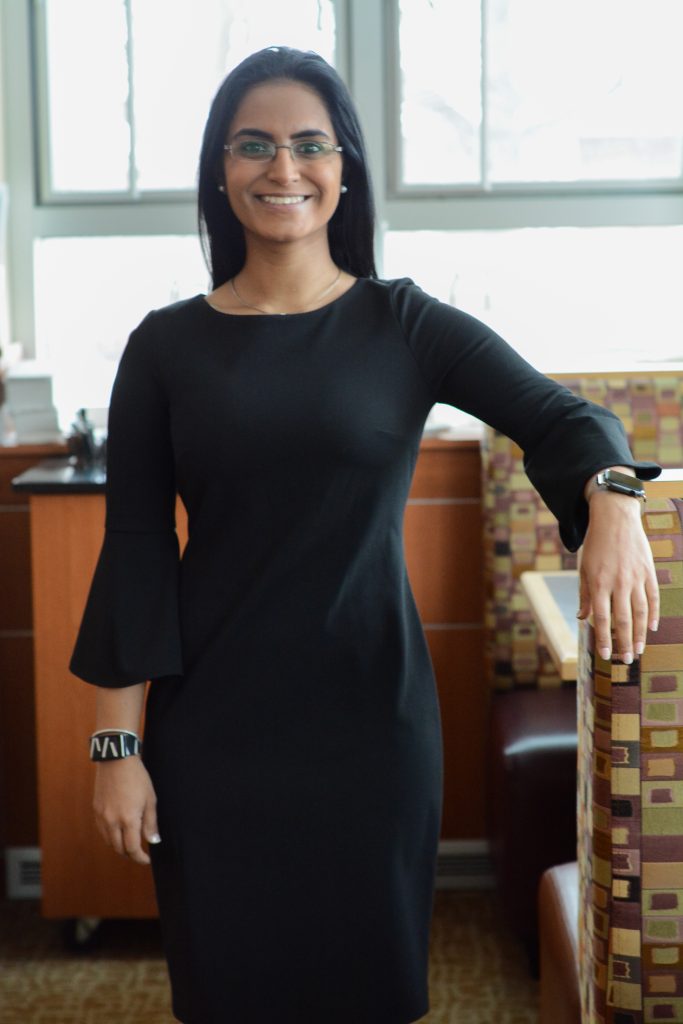
Pipe Dream sat down with Komal Dadlani, a biochemist with research experience in nanobiotechnology and molecular diagnostics and co-founder of Lab4U, a company that provides apps, resources and programs for teaching science and aims to democratize scientific education. Dadlani has received several awards for her work at Lab4U and has been recognized as a top female entrepreneur. This interview has been edited for length and clarity.
Pipe Dream: How did you come to give a TED talk at Binghamton University, and is this your first talk? How do you feel about it?
Komal Dadlani: I’m very excited. Speaking at a university is always very thrilling. I’m a bit conscious, because you guys are actually going to be the change-makers of tomorrow once you get into the workforce, so I’m more excited to set a good example.
PD: I saw that you got your Master of Science in Chile. What brought you there? Did you grow up there?
KD: I was born and grew up in Chile, the daughter of an immigrant family, which is weird for Indian parents to be in Chile among a Latino community. I studied biochemistry and went through my master’s with this passion and angst to solve a challenge through science and technology, or through science in particular. My mother passed away [from] cancer, so I was very passionate about just working in cancer research and that’s how I was involved in a lab in Chile. But throughout the years, I was very uncomfortable knowing that regardless of how many hours I was in the lab, things were hard to change, so I asked myself the question, ‘What do we really need so that the smartest people in the world can actually solve some of the world’s biggest challenges?’ And that’s when I realized I wanted to dedicate my life to science education. And the challenge that I would see in Latin America is that there is a lot of talent, but there aren’t many opportunities. So you would see that 80 percent of the schools don’t have any labs; science is taught very theoretically, so I decided to change that.
PD: How does your talk relate to the work that you’ve been doing?
KD: So for me, it’s very important to share what we’ve learned while implementing technologies that democratize science and give everyone the access to science education. I truly believe the challenges are universal, but opportunities are not. For me, the next Einstein or Marie Curie can be anywhere in the world. So why not give everyone that opportunity to experiment and see the world around them? I mean, Google has democratized information, social media [and] how we can connect with people. But what has happened in science education? It’s still stagnant. Nothing has actually changed. So I’m passionate about sharing this story, what we’ve learned in Latin America and now in the U.S., implementing that for you to change the way science is taught with something that everyone has in their pockets.
PD: What do you hope the students take away from your talk?
KD: My most difficult audiences have been students, in the sense that I have a responsibility to share a message that should inspire them, that should make them want to be better than me and aspire to a lot more, so that the day that you guys will want to be better than me and the people that surround me and make the world a better place is a day [that] will be better for me and my kids and my future. If I’m able to just make one person from the audience think different and inspired, at least one from a group of 500 students, [the work] paid off. I’m inspired by students. I think today’s students are just more open-minded, more cosmopolitan, more diverse, [have] more respect for gender, for skin color. I feel inspired by today’s generation. And I hope I can share a little bit of this knowledge so that they can be tomorrow’s greatest change-makers.


